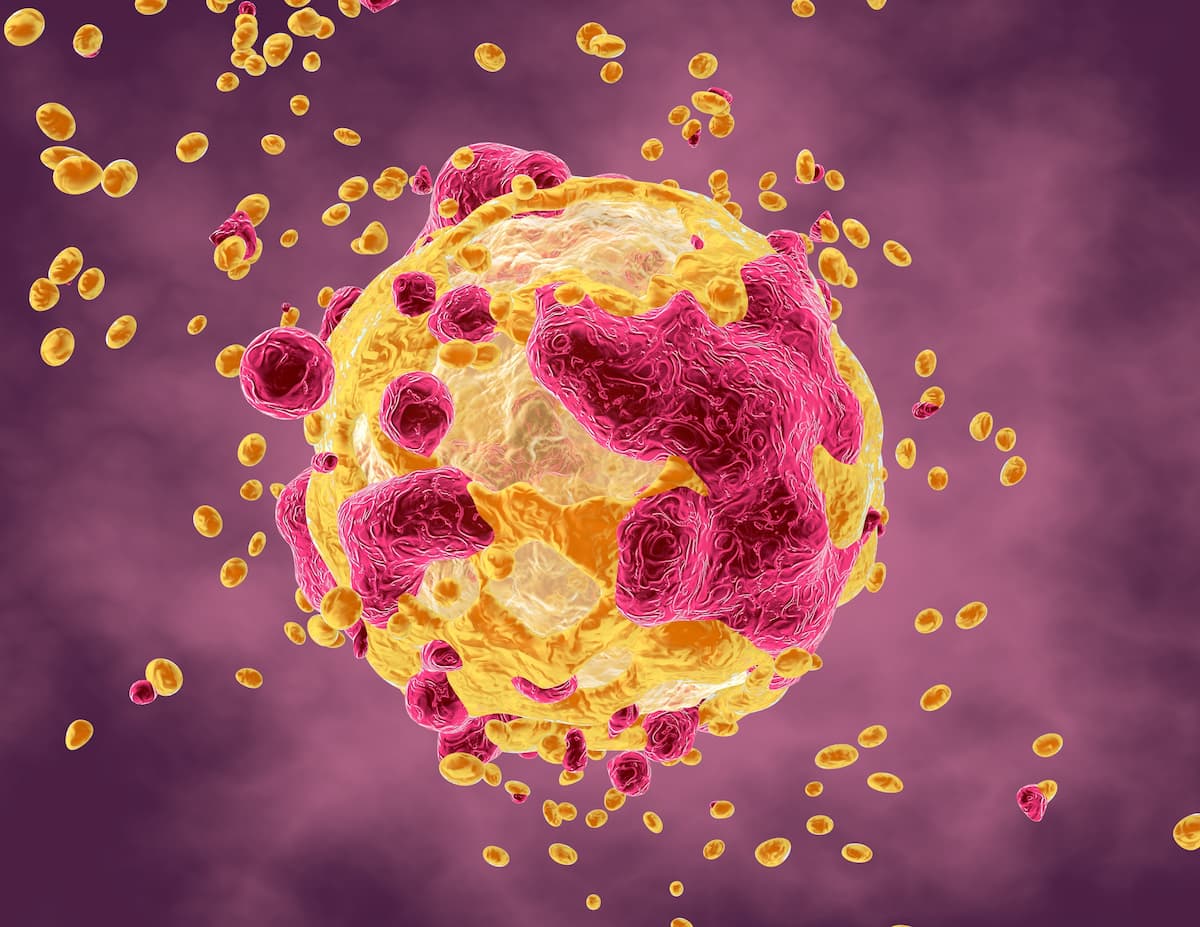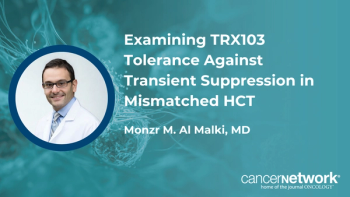
Afami-cel Earns FDA Accelerated Approval in Unresectable Synovial Sarcoma

Data from SPEARHEAD-1 support the accelerated approval of afamitresgene autoleucel in metastatic or unresectable synovial sarcoma.
The FDA has granted accelerated approval to afamitresgene autoleucel (afami-cel; Tecelra) as a treatment for adult patients with metastatic or unresectable synovial sarcoma previously treated with chemotherapy, according to a press release from the developer, Adaptimmune Therapeutics.1
Specifically, the agent is indicated for use in patients with HLA-A*02:01P–, HLA-A*02:02P–, HLA-A*02:03P–, or HLA-A*02:06P–positive disease and those whose tumors express MAGE-A4 as detected via an FDA-approved companion diagnostic test. Full approval status for afami-cel may be dependent on results from an additional trial confirming its clinical benefit in this population.
Following the FDA’s decision, afami-cel is the first engineered cell therapy to receive approval for a solid tumor indication in the United States.
Supporting data for the accelerated approval came from cohort 1 of the
According to the boxed warning for afami-cel, common adverse effects (AEs) following treatment included cytokine release syndrome (CRS), nausea, vomiting, fatigue, pyrexia, infections, constipation, abdominal pain, and back pain.
Findings from SPEARHEAD-1 published in The Lancet indicated that the median overall survival (OS) was 15.4 months (95% CI, 10.9-28.7) across the overall population, with an estimated 12-month OS probability of 60% (95% CI, 46%-73%).2 Among patients with a response, the median OS was NR (95% CI, 15.4-not estimable), the estimated OS rate at 12 months was 90% (95% CI, 65%-99%), and the estimated 24-month rate was 70% (95% CI, 43%-87%).
“Afami-cel, which uses each patient’s own immune cells to recognize and attack their cancer cells in a one-time infusion treatment, is significantly different than the current standards of care for advanced synovial sarcoma,” lead trial investigator Sandra D’Angelo, MD, a sarcoma medical oncologist and cell therapist at Memorial Sloan Kettering Cancer Center, said in the press release.1 “This approval represents a much-needed new option for people diagnosed with this sarcoma and an important milestone for the use of cell therapies in solid tumor cancers.”
In cohort 1 of the open-label SPEARHEAD-01 trial, 44 patients with HLA-A*02–positive, metastatic, unresectable synovial sarcoma were assigned to receive afami-cel at a single intravenous dose of 1.0 x 109 to 10.0 x 109 T cells after lymphodepletion.
The trial’s primary end point was ORR in cohort 1 based on independent review committee assessment per RECIST v1.1 criteria. Secondary end points included treatment-emergent AEs, DOR, time to initial confirmed response, progression-free survival, and OS.
The
“For decades, therapeutic options for people diagnosed with synovial sarcoma have been limited. With a current 5-year survival rate as low as 36%, and for those with metastatic disease at diagnosis, as low as 20%, it is long past time that [patients with] synovial sarcoma have expanded treatment options,” Brandi Felser, chief executive officer at the Sarcoma Foundation of America, said in the press release.1 “Since one third of patients are diagnosed under age 30, improved outcomes can have a tremendous impact. Today, there is a renewed sense of hope for this patient community.”
References
- Adaptimmune receives U.S. FDA accelerated approval of TECELRA® (afamitresgene autoleucel), the first approved engineered cell therapy for a solid tumor. News release. Adaptimmune Therapeutics. August 2, 2024. Accessed August 2, 2024. https://tinyurl.com/mw6k4hjh
- D’Angelo SP, Araujo DM, Abdul Razak AR, et al. Afamitresgene autoleucel for advanced synovial sarcoma and myxoid round cell liposarcoma (SPEARHEAD-1): an international, open-label, phase 2 trial. The Lancet. Published online March 27, 2024. doi:10.1016/S0140-6736(24)00319-2
- Adaptimmune announces U.S. FDA acceptance of biologics license application for afami-cel for the treatment of advanced synovial sarcoma with priority review. News release. Adaptimmune Therapeutics. January 31, 2024. Accessed August 2, 2024. http://tinyurl.com/3xr923n4
Newsletter
Stay up to date on recent advances in the multidisciplinary approach to cancer.










































